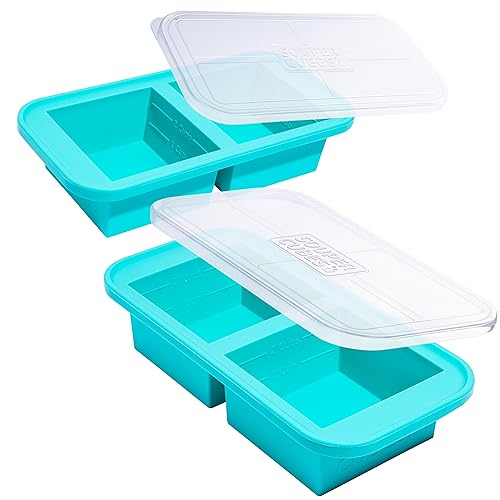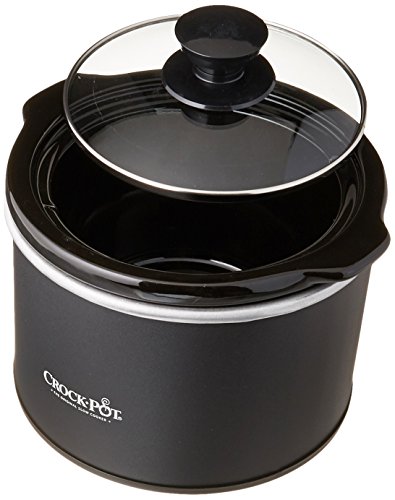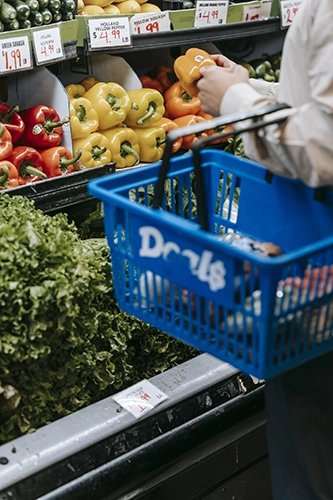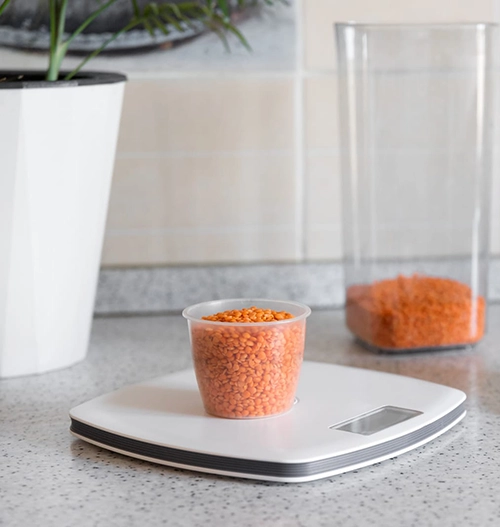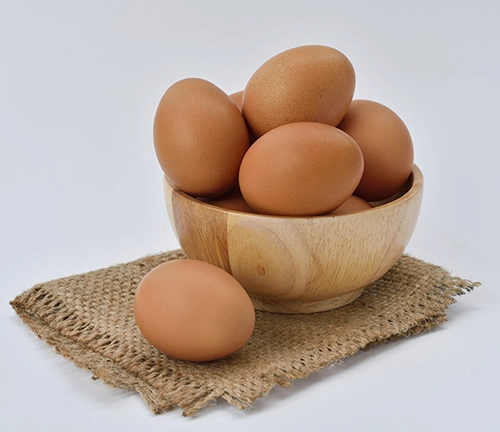Soup for Days: How Long Can You Freeze Soup?
Hello, soup lovers! Have you ever wondered, “how long can you freeze soup?” If you’re a soup enthusiast like us, you’ve probably found yourself with a large batch of delicious homemade soup that you can’t finish in one sitting. No worries, because freezing is an excellent solution to prolong the shelf life of your favorite soup.
Freezing a big batch of soup is not only a smart way to avoid waste, but also a great way to have a warm, comforting meal ready at your fingertips. Whether you’re a busy single parent who needs a quick dinner solution, a student on a budget, or someone who loves to meal prep, this blog post is for you. Today, we’ll explore the ins and outs of freezing soup, from the benefits to the best practices and common mistakes to avoid.
TLDR. So, how long can you freeze soup? The quick answer: it depends. In general, most soups can be frozen for up to three months without losing their quality. However, this can vary depending on the ingredients, the type of soup, and your freezing method.

The Benefits of Freezing Soup
So why should you freeze soup? First off, it’s a fantastic way to retain the freshness and quality of your soup for a longer time. This is especially helpful when you’ve made a large or small batch of your favorite soup and don’t want it to spoil. You may ask, how long is soup good in the freezer? We’ll get to that in a bit, but for now, know that freezing can extend the life of your soup for months.
Another great benefit of freezing soup is that it allows you to prepare meals ahead of time and create a freezer stash for meals when life gets busy. Imagine coming home after a long day and having a delicious, homemade soup ready to heat and eat. Sounds fantastic, right? Plus, freezing soup can be a real money-saver. By making small or large batches and freezing them, you can take advantage of bulk buying and seasonal produce.
Lastly, and perhaps most importantly, freezing soup ensures you always have a nutritious meal option readily available. It can be a lifesaver during those busy weeks when you simply don’t have the time to cook from scratch.

How Long Can You Freeze Soup?
So, how long can you freeze soup? The quick answer: it depends.
In general, most soups can be frozen for up to three months without losing their quality. However, this can vary depending on the ingredients and the type of soup.
The three-month guideline is a conservative estimate to ensure that your soup maintains its optimal flavor and texture. After this point, while the soup may still be safe to eat, you might start to notice a decline in its taste and appearance.
Remember, freezing doesn’t kill bacteria, it simply slows their growth. So, it’s crucial to freeze your soup as soon as it cools to ensure its safety and freshness.
Factors That Affect How Long Soup is Good in the Freezer
There are several factors that can affect how long soup is good in the freezer. The first factor is the ingredients used in your soup recipe. Certain ingredients, like potatoes, pasta, or dairy, may not hold up well in the freezer, leading to changes in texture when thawed and reheated.
Another factor is the way the soup is stored. Proper storage is key to maintaining the quality of frozen soup. Use airtight containers for freezing soup. This will help prevent freezer burn and maintain the soup’s flavor and texture for longer in your freezer.
Lastly, the temperature of your freezer affects how long soup is good in the freezer. The FDA recommends keeping your freezer at 0°F (-18°C) or lower to keep frozen food safe and at its best quality.

Best Tips on Freezing Different Types of Soup
When it comes to freezing soup, not all soups are created equal. Certain soups freeze better than others due to their ingredients. For example, brothy soups like chicken noodle or vegetable soup generally freeze well. Creamy soups or dairy-based soups, on the other hand, can separate or become grainy when frozen and reheated.
If your soup contains pasta or rice, you might want to consider leaving them out before freezing and freezing separately, cooked only slightly. These ingredients can become mushy when frozen and reheated. Instead, add cooked pasta or rice when you’re ready to serve the soup.
For meaty soups, it’s a good idea to cut the meat into bite-sized pieces before freezing. This allows the soup to freeze and thaw evenly, and it’s also more convenient when it’s time to reheat and serve the soup.
Examples of The Best Soups that Freeze Well
Next, let’s discuss some of the best soup recipes to freeze that uphold their flavor and texture.

Best Freezer Containers for Freezing Soup
Choosing the right containers for freezing soup is crucial for getting the best results, preserving the taste of your soup, and nutritional value. There are several options to consider. For all of these methods don’t forget to label your container with the type of soup and date packed.
Choosing the right containers for freezing soup is crucial for getting the best results, preserving the taste of your soup, and nutritional value. There are several options to consider. For all of these methods don’t forget to label your container with the type of soup and date packed.
Using Freezer-Safe Bags
This method is excellent for saving space in your freezer. Allow your soup to cool down first, then ladle it into freezer-safe bags. Remember to leave a little space for the soup to expand as it freezes.
Then you will lay the plastic bags flat in your freezer until frozen. Once frozen, you can stack them or rearrange to optimize space.
To be environmentally friendly consider using Silicone freezer bags or pouches over plastic. Silicone bags are flexible and space-saving, making them ideal for smaller freezers.
Pros: A freezer-safe bag is an affordable and space-saving solution for freezing soup. Since they lay flat, they are perfect for smaller freezers. They also allow you to freeze soup in customized portion sizes.
Cons: Durability can be an issue with freezer bags, as they can sometimes tear or leak. Also, the bags can be tricky to fill without spilling, especially without a second pair of hands or a tool to hold up the bags.
Using Plastic Storage Containers
Another effective way to freeze soup is by using BPA-free plastic containers. After cooling the soup, pour leftover soup into the airtight container, ensuring you leave about an inch of space at the top for expansion.
Seal the containers with airtight lids to prevent freezer burn and preserve the flavor. This method is great for freezing larger quantities of soup.
Pros: Plastic containers are widely available and fairly inexpensive. They are also stackable, making them a great option for efficient use of freezer space. The rigid structure prevents spills, and transparent ones make it easy to identify the soup inside.
Cons: Not all plastic containers are BPA-free, which can pose health risks. They can also stain or absorb odors over time. Also, if the seal isn’t airtight, it could lead to freezer burn. Because this is a larger container you cannot freeze your soup in individual portions.
Utilizing Glass Containers
Glass containers, particularly those designed for freezing and baking, are a fantastic eco-friendly option. They can go straight from the freezer to the oven or microwave, making the reheating process a breeze. Just be careful to leave room for expansion, and remember that glass can be more susceptible to breakage.
Pros: Glass containers are an environmentally friendly choice and are safe for use in both the freezer and microwave or oven. They won’t absorb odors or stain like some plastic containers.
Cons: Glass containers are heavier and more prone to breakage. They also typically cost more than plastic containers. Additionally, you need to ensure they are fully cooled before transferring from a hot to a cold environment to avoid cracking.
Investing in Souper Cubes
For those serious about soup, Souper Cubes are a game-changer. These silicone trays are designed specifically for freezing soup in perfect, single serving portions. We think that using Souper Cubes in the best way to create individual servings for fast meals in freezer-safe containers.
Simply fill the room temperature soup into the compartments, cover with the lid, and freeze. When you’re ready to eat, you can pop out the exact number of portions you need. We personally use and love this option in our kitchen. The Souper Cubes also tend to keep soup fresher than the other freezing methods.
Pros: Souper Cubes are an innovative solution for freezing soup. They are designed to freeze soup into perfect portions (shaped like single-serving blocks). Each cube is one or two cups, making portion control a breeze. The silicone trays are flexible, making it easy to pop out the frozen soup, and they come with a lid to protect against freezer burn and leakage. They are BPA-free and dishwasher safe, which makes cleanup easy.
Cons: Souper Cubes are a bit of an investment compared to other methods. They also require a bit more storage space in the freezer due to their rigid shape. Lastly, you’ll need to transfer the frozen soup cubes to a freezer bag or another container if you need the tray for another batch of soup.
Did you know?
Did you know you can get 10% off your first Souper Cubes purchase? Use my affiliate link to save.
How to Thaw and Reheat Frozen Soup
When you’re ready to enjoy your frozen soup, thawing and reheating it correctly is crucial to maintaining its flavor and texture.
To thaw your soup, the best method is to transfer it from the freezer to the refrigerator and let it thaw slowly overnight. If you’re in a hurry, you can use the defrost function on your microwave, but be sure to stir it frequently to ensure even thawing.
When it comes to reheating, you have a few options. You can reheat your soup on the stovetop over medium heat, stirring occasionally. If you prefer to use the microwave, reheat in a microwave-safe container on high for 2-3 minutes, stir, then continue heating in 1-minute intervals until hot.
If you don’t have access to a microwave or a stove and are in a college form or are taking your soup to work look into a mini crockpot to reheat your soup.
You can also reheat your soup from frozen if you are using Souper Cubes. This will take a bit longer on the stove or in the microwave but works really well. Simply add your 1 or 2 cup Souper Cubes to your sauce pan or microwave safe dish with a little water and the soup will reheat and defrost at the same time.

Common Mistakes to Avoid When Freezing Soup
Freezing soup is pretty straightforward, but there are a few common mistakes you should avoid. The first mistake is freezing soup while it’s still hot. This can raise the temperature of your freezer, affecting the other foods stored there. Always allow your soup to cool before freezing it.
Another mistake is overfilling your containers. Remember that liquid expands when it freezes, so leave about an inch of space at the top of your container to allow for this.
Finally, don’t forget to label your containers with the date and the type of soup. This will help you keep track of how long your soup has been frozen and make meal planning easier. You can label with a black sharpie, erasable markers if you are using reusable containers, or tape and and markers.
Frequently Asked Questions About Freezing Soup
To wrap up, let’s tackle some frequently asked questions about freezing soup.
Can I freeze soup in mason jars?
Yes, you can freeze soup in mason jars, but there are a few things to keep in mind. First, use jars that have straight sides, as ones with shoulders are more likely to crack as the soup expands while freezing. Second, leave at least an inch of headspace to allow for expansion. Lastly, let the soup cool completely before freezing.
Can I freeze soup with cream in it?
While you can freeze soup with cream in it, be aware that it may separate or become grainy when thawed and reheated. To prevent this, you can try blending the soup after reheating to smooth out the texture. Alternatively, consider adding the cream after thawing the soup.
How can I prevent freezer burn on my soup?
To prevent freezer burn, ensure that your containers are airtight and fill them as much as possible without overfilling. This minimizes the amount of air in the container, which can lead to freezer burn.
Soup’s On – Now and Later: Final Thoughts on Freezing Soups
Freezing soup is a wonderful way to extend the life of your favorite soups, save money, and always have a nutritious meal on hand. While it requires a bit of knowledge and care, with these tips and tricks, you’ll be a soup-freezing pro in no time. So next time you whip up a batch of your favorite soup, don’t hesitate to make extra and freeze it for later. Happy soup making, and enjoy those delicious, convenient frozen soups!

Our Favorite
Soup Recipes
Disclaimer
As an Amazon Affiliate we earn from qualifying purchases at no additional cost to our readers.
Don’t forget to pin this for later!












